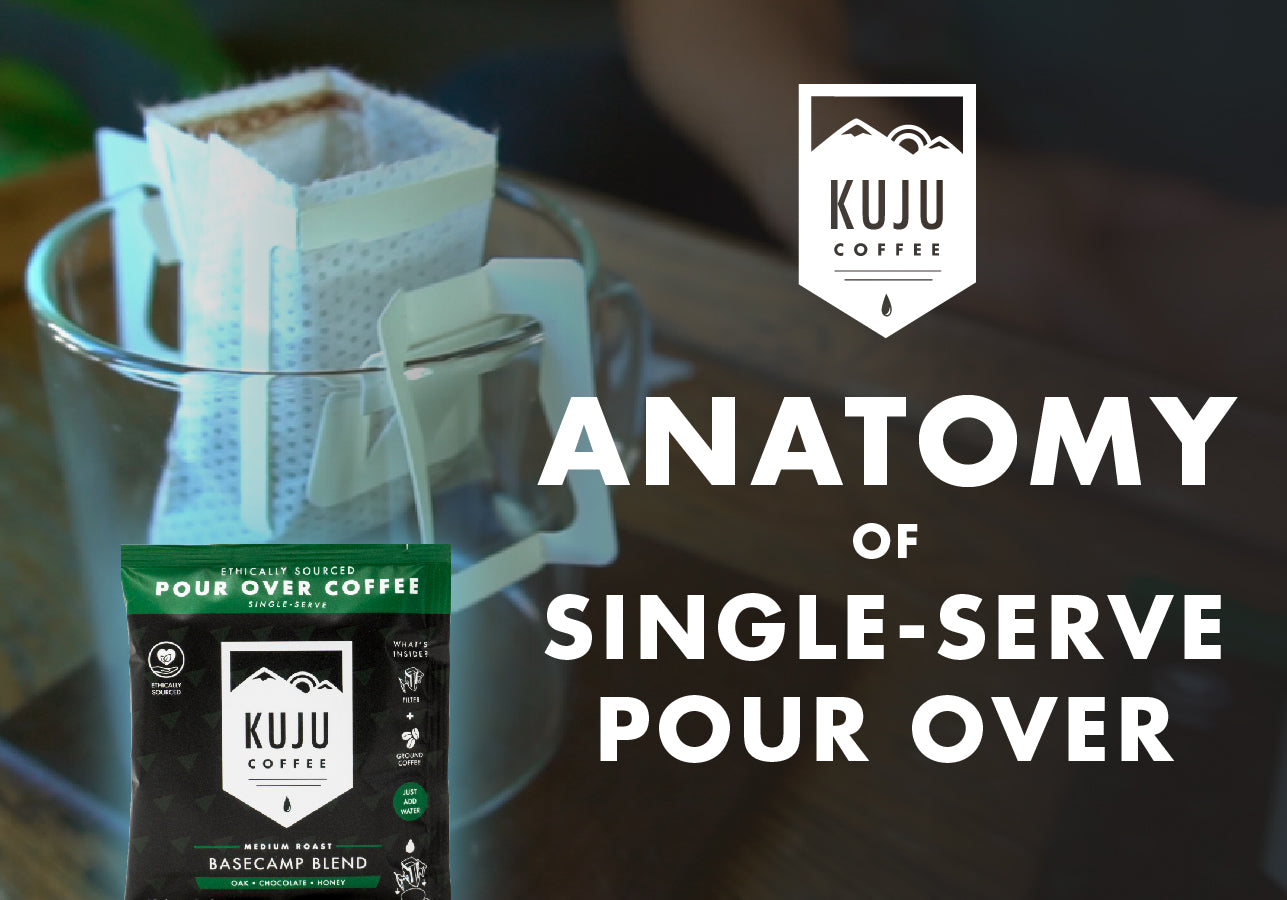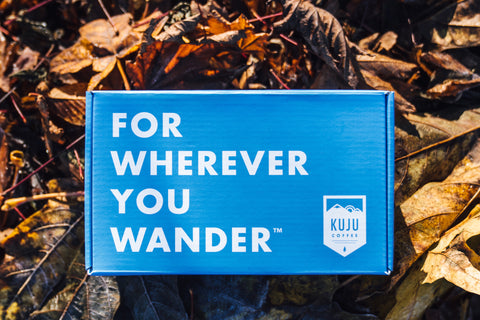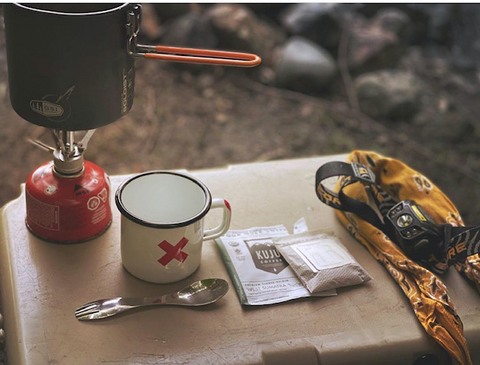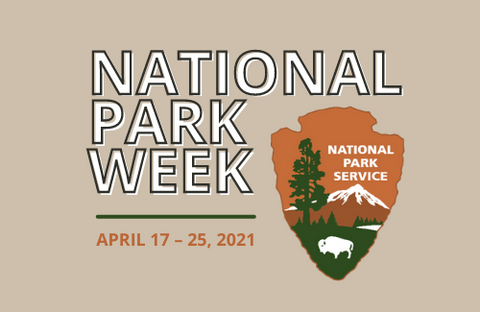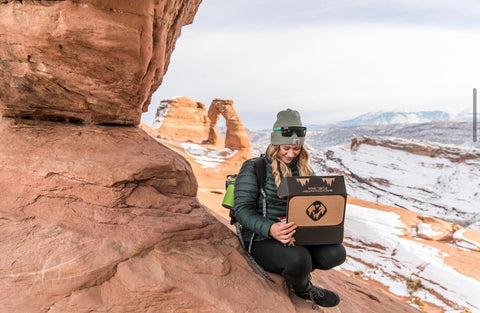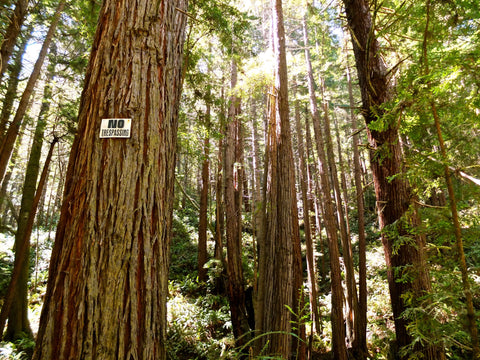What do you call those funny looking coffee filters that you’ve been seeing all over the internet? They’re used for making coffee without any equipment anywhere. We call them single-serve pour overs, but other names that have come up in the past are drip bag coffee, single use pour over, portable pour over, disposable pour over, pour over drip coffee or one-cup portable drip coffee.
Nonetheless we call them single-serve pour overs. And if you’ve seen these around on YouTube, Instagram, our website, Amazon or REI, then you may have been wondering exactly what these filters are.
You’re in luck because we’ll be walking through the anatomy of single-serve pour over, breaking down and dissecting the different components that make our product.
Why should you read or watch this? Two reasons.
(1) So that you can be fully educated about a product you might (and hopefully!) have an interest in.
(2) So that when you get your hands on some single-serve pour over, you’ll have a deep understanding of what it is and how it works, which will lead you to the most delicious cup of pour over coffee you’ve ever had at the top of a mountain (or wherever you are *wink*).
Our single-serve pour overs are made up of four primary parts – the filter material, the anchors that secure the filter onto a mug, the coffee and the pouch that everything comes in.
Filter Material
Our filters are made from a non-woven fabric, specifically engineered for brewing coffee. Pour over coffee requires that the grounds are fully filtered out so that you can have a clean cup of coffee with no coffee grounds or powder at the bottom. Our filter material does just that. It is an eco-friendly, recyclable material that is super lightweight, yet durable.
When we receive the materials, it comes flat, and our wind powered manufacturing line seals all sides while filling it with coffee.
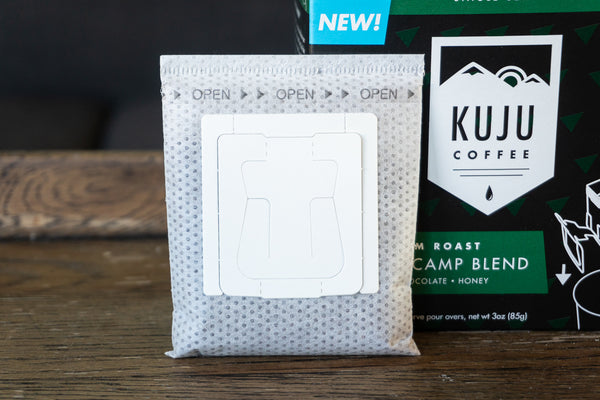
Perhaps one of the most important details to point out is the top of the filter where you tear it open. There are three distinct parts to this: the sealing line, an “open” label with arrows and a perforation where you tear. The most effective and recommended way to open the filter is to tear along the perforation. It may be hard to see, but it is right under the “open” label. The perforation is designed to result in a clear tear so that upon opening, you have a pour over ready to go.
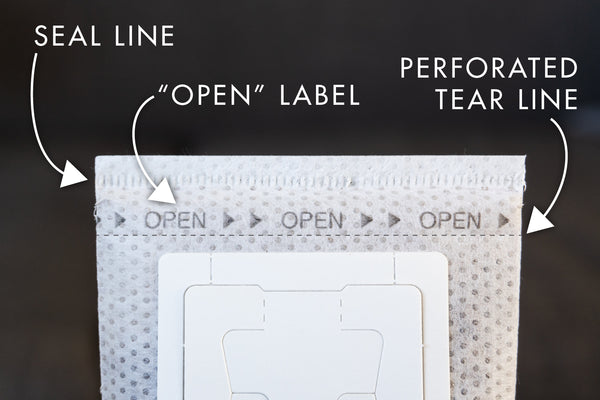
Steady-Safe™ Anchors
Our filter material does wonders, but it wouldn’t be of much use without the magic of our Steady-Safe™ Anchors, designed to transport flat and expand to secure the pour over onto your mug. Each pour over has two paper anchors (one on each side) that make it possible to brew pour over on mugs with diameters roughly between 2.5 inches and 4 inches.
If you look closely, you’ll see that the anchors have two sets of vertical perforations each. These are for folding the anchors backward for extra stability. It’s great for if you have a wider mug or a mug with a thick lip. If you’ve had issues with your filter falling into your mug as you pour, folding the anchors back will solve your problems.
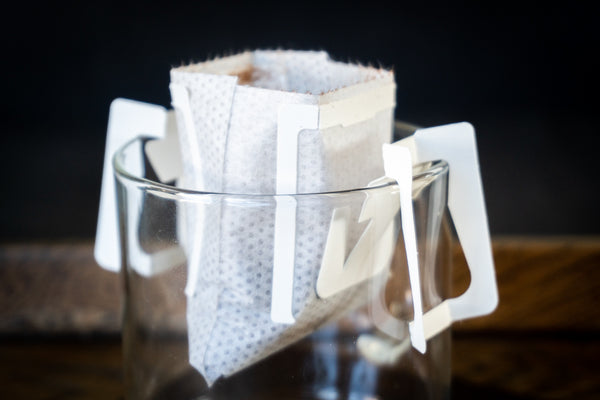
Lastly, the anchors are great for pulling the filter out once you are done brewing. Pulling the bottom of the anchors upward makes it easy to pull out the filter without burning yourself while keeping the coffee contained.
Specialty-Grade Coffee
We fill all of our single-serve pour overs with only the best specialty-grade, 100% arabica coffee beans we can find. The coffee bean is the most important factor in making a great cup of coffee, and we don’t cut any corners to deliver you a quality cup.
The beans are roasted and ground to a medium grind size right before packing. We’ve tested the range of grind sizes and have found that the medium grind size is the most ideal for rich pour over flavor.
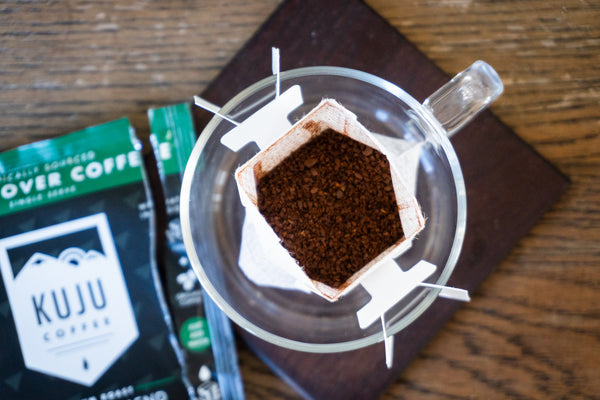
As mentioned above, we grind right before packing to ensure the freshest cup possible. In addition, we fill each pour over with 14 grams, which is the amount of coffee needed to brew an 8-12 oz cup.
For those of you who are counting every gram of weight for your travels, each pour over comes out to be just north of 15 g.
Time-Stopping Pouch
The last piece of our single-serve pour overs is our time-stopping pouch that holds the filter. It’s what you see on our website and on the shelf. The materials for our pouches form a strong gas barrier to prevent oxygen or any other gases from leaking in. Oxygen is the number one enemy of the freshness of coffee, so we use this material to keep it out.
In addition, we Nitro-Flush™ each pouch right before sealing to remove all of the oxygen and replace it with food-grade nitrogen, which “stops time” and prevents the degradation of the coffee. With this, we can achieve a shelf life of 18 months for our one-cup pouches.


